The next grantee from our spring 2016 cycle is Erica Dunayer. She was awarded a Leakey Foundation Research Grant for her project entitled “Influence of stress for market exchanges in Cayo Santiago macaques.”
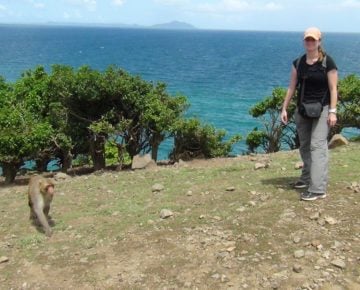
Erica Dunayer conducting pilot research on the island of Cayo Santiago, Puerto Rico
One defining characteristic of humans is their unusually cooperative nature, which is unparalleled among animals. The scope and willingness of modern humans to behave altruistically—to help others at a cost to themselves—demands explanation, as the existence of costly behavior seemingly defies natural selection. Therefore, one important goal for evolutionary anthropologists is to understand the nature and evolution of altruism. Like humans, many Old World monkeys rely on cooperation to navigate their social worlds; however, whether cooperation in these monkeys is shaped by similar functional and proximate mechanisms is unknown. Yet this information is essential for understanding how and when human forms of cooperation evolved.
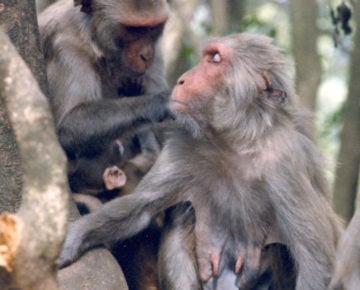
Rhesus macaque grooming on Cayo Santiago. Photo credit: Dr. Carol Berman
My dissertation will examine cooperative exchanges among free-ranging rhesus macaques (Macaca mulatta) on Cayo Santiago, focusing on one hypothetical model of cooperation: biological markets theory. One tenant of this theory is that exchanges conform to supply and demand principles; however, the evidence for supply and demand based exchanges among primates remains inconclusive, at least partly because no study has closely examined the possibly complicating variable of stress. This study will focus on exchanges of grooming for sex and for infant handling. Are apparent supply and demand relationships artifacts of, or mediated by stress (measured both behaviorally and physiologically)? Understanding possible proximate mechanisms behind exchanges, such as stress, may help reveal parallels or discontinuities in the way these primate markets typically operate compared to human markets, which do not characteristically involve mediation by stress. Importantly, evidence of supply and demand principles among primates (or not) will help elucidate whether particular manifestations of human market systems have early origins in nonhuman primate ancestors, or whether they arose independently in early hominins.
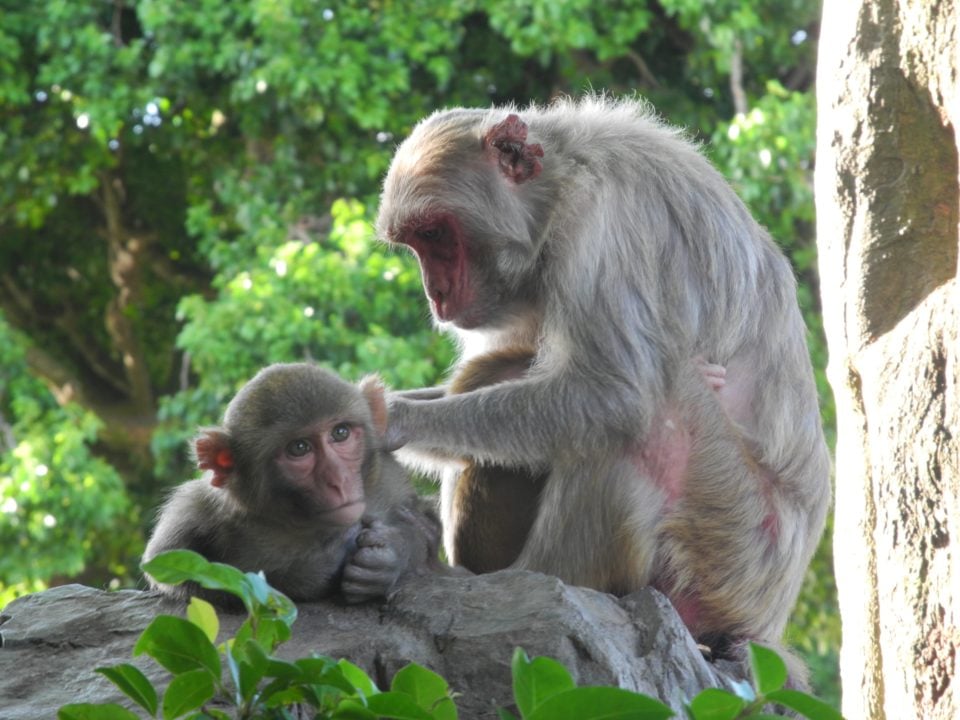
Rhesus macaque grooming on Cayo Santiago


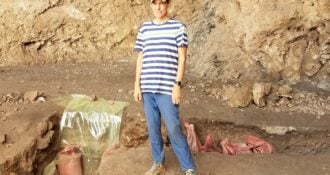
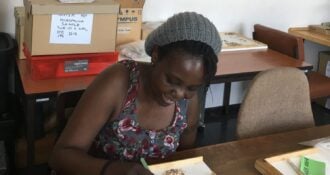
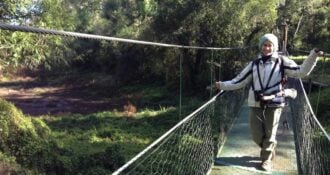
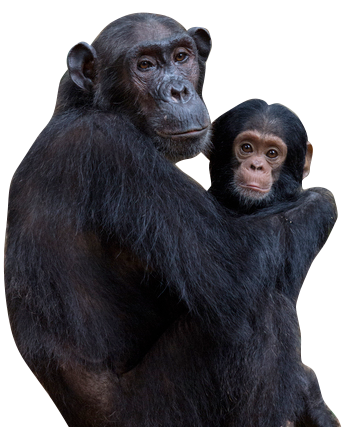
Comments 0